Champions of Change Blog
Utilizing Lessons from AmeriCorps as Mayor
Posted by on August 17, 2012 at 2:45 PM EDT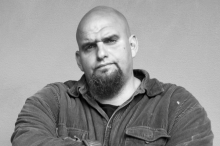 Mayor John Fetterman is being honored as a Champion of Change for his time and effort in AmeriCorps.
Mayor John Fetterman is being honored as a Champion of Change for his time and effort in AmeriCorps.
As the mayor of Braddock, Pennsylvania, one of the state’s poorest and most challenged communities, my service through AmeriCorps underpins much of my entire professional career and pays dividends daily.
In some respects, I’ve never left AmeriCorps. Just this past Friday, members from Allegheny County’s KEYS Service Corps celebrated their summer of service in our community’s playgrounds. Next week, KEYS Service Corps members will assist with the constructions of an off-leash area for dogs and help staff our Community Day celebration.
Without KEYS Service Corps, our community could not actively engage Braddock’s children during the summer months. But AmeriCorps involvement in our community extends far beyond our playgrounds. AmeriCorps also directs the largest and most successful youth summer jobs program in Allegheny County- The Braddock Youth Project.
Their service to Braddock also annually includes several large-scale service projects.
I’d like to believe I made a difference during my years in AmeriCorps setting up the first computer labs in Pittsburgh’s Hill District and teaching GED classes. Even 15 years after my formal service ended, I will still occasionally encounter a former student that is doing well for themselves and families.
Serving alongside members in Braddock reminds me of my own time with AmeriCorps. The partnership Braddock enjoys with KEYS Service Corps, without a doubt, is one of the most important and potent community rebuilding forces currently operating in Braddock today.
John Fetterman is the mayor of Braddock, Pennsylvania.
Learn more about ServiceServing the United States Through AmeriCorps
Posted by on August 17, 2012 at 2:39 PM EDT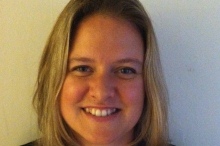 Dr. Sharon Wagner is being honored as a Champion of Change for her time and effort in AmeriCorps.
Dr. Sharon Wagner is being honored as a Champion of Change for her time and effort in AmeriCorps.
I am truly honored to be included in such a remarkable and dynamic group of social advocates as the Champions of Change. My own story of service began in middle school. I grew up in a small town on the South Shore of Boston, MA, and attended a very special camp on Cape Cod called Briarwood. This was a special place because through all the turmoil of emotions that accompanied adolescent years, it was the one place I could go among my peers and feel accepted. I wasn’t a religious child, but I felt a strong spiritual connection to God, humanity, and the Earth as we learned about each other and the Christian and Native American beliefs connected to society and the environment. After my second summer as a camper at Briarwood, I volunteered every summer for eight years as a camp counselor in order to ensure that other young people would be able to experience this connection and acceptance.
The experience at Briarwood allowed me to appreciate the gravity of the situation when at the age of 12, I read about the impending extinction of the rainforests around the world. The article lit a spark in me. It seemed so wrong from a spiritual perspective to be killing so many species that share the Earth with us. It seemed so foolish from a human perspective to be destroying the very thing that may hold the key to curing some of our most terrible diseases. As I learned more about environmental issues, I committed myself to a career path that would enable me to work toward protecting the environment and the people that depend on it. As an Environmental Science major at the University of Massachusetts Amherst, I had the opportunity to spend a week during my senior year as a participant in one of the first Alternative Spring Break trips. I traveled with a group of students and our instructor, Dr. Art Keene, to New Road, Virginia to learn about poverty, social justice, and grassroots development, while assisting with building renovations and cleanup in the community. This trip was my first experience with service learning, the concept of treating a volunteer experience as much as an opportunity for the volunteer to learn and grow from the community as for the community to benefit from the volunteer’s work. It was a concept that made a lot of sense to me. People don’t want someone riding in on their white horse to save them. They’re not going to trust that. But, if they realize it as a partnership, where they have something to give as well – if both the volunteer and the people they serve have pride in the work – that is when change is possible.
AmeriCorps was the natural next step when I graduated from UMass. As a 22-yr-old graduate, I wanted to save the world – I just didn’t know where to start. I applied to the Peace Corps, but when it came down to it, I looked around and saw so much need in our own country that I could not ignore. I wanted to serve the people of the United States of America. AmeriCorps National Civilian Community Corps (NCCC), with its focus on service learning, gave me that opportunity. I was stationed in Charleston, South Carolina and trained for acceptance into a wildfire-fighting team. Our team, Red 5, did three environmental projects in Florida, Georgia, and Tennessee, where we removed exotic vegetation, planted native vegetation, built trails and renovated park equipment. We did two education projects – at the Arkansas Children’s Hospital in Little Rock and at the South Carolina Teen Institute. And, we did two projects in the area of unmet human needs. We were team supervisors for two months for college students who volunteered on their spring breaks for Habitat for Humanity in Anniston, Alabama. Then, we used what we had learned in Alabama to renovate a shelter for abused and neglected children in Hope Haven, Mississippi. I received an email from the director of the shelter in 2005 that the building we renovated was one of very few left standing after Hurricane Katrina hit the area.
My experience with AmeriCorps was rewarding, challenging and memorable. It opened my eyes to the depth of need in the United States and to the unique, inviting culture of the South. It showed me the power of a small group of citizens committed to “Getting Things Done”. It gave me the confidence to work as a middle school science teacher in a Mexican barrio in San Diego, California even though I had no formal education training or experience with the culture. I taught for three years at King/Chavez Academy of Excellence and connected with my students using the service learning skills I had gained in AmeriCorps and Alternative Spring Break. The passion for learning about social and environmental issues in other cultures and educating youth led me to teach high school Environmental Systems for two years at Colegio Americano in Quito, Ecuador. I returned from Ecuador with renewed appreciation for the opportunity for change that exists in the United States and began to work toward a doctoral degree in Engineering and Public Policy at Carnegie Mellon University. As an Environmental Systems teacher in Ecuador, I had begun to appreciate that energy is the key issue at the intersection of environmental and social issues for our country and the world.
I am now an Assistant Professor in the School of Economics at the University of Maine, teaching about energy issues and working to advance a humane and sustainable energy future. As a public land-grant institution, the University of Maine is committed to serving the citizens of Maine, the nation and the world. I have the unique opportunity to collaborate with a group of highly skilled, intelligent, hard-working, and compassionate scientists to encourage the development of vast renewable energy resources in Maine and throughout the country in a way that improves social wellbeing. In a career path committed to service, my experience in AmeriCorps was a crucial step during a transition from youth to professional that gave me the confidence, knowledge and skills to solve critical social and environmental problems.
Dr. Sharon Wagner is an Assistant Professor in the School of Economics at the University of Maine.
Learn more about ServiceSaying Yes to PTA Involvement
Posted by on August 9, 2012 at 11:19 AM EDT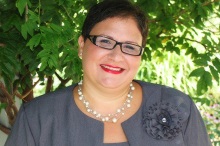 Ana Chapman is being honored as a Champion of Change for her time and effort in supporting parent involvement in our children's education.
Ana Chapman is being honored as a Champion of Change for her time and effort in supporting parent involvement in our children's education.
I am honored to be selected as a White House Champion of Change. For me, change can only happen through education. And, because of that, I am a defender and supporter of education in my roles as teacher, mom, PTA leader, and community member.
PTA has been an integral part of my life, since 2004, when my oldest daughter entered kindergarten. As a teacher, I knew the importance of parents being involved in schools, but as a parent, this involvement took on a whole new meaning. Now, it was my child who, out of my care, was being shaped and taught life lessons. I knew I needed to be a part of that and, for me, PTA was the obvious avenue.
On that evening, in 2004, surrounded by PTA women, whom I had just met, I raised my hand and said “yes”. “Yes” to coordinate the bowl-a-thon team for the elementary school’s PTA. But from that day on, I have continued to proudly say “Yes”. “Yes” to creating monthly family events for the school. “Yes” to chairing the 1st annual “Take Your Family to School Week”. “Yes” to being president of my son’s school PTA, and, “Yes” to taking the next step and leading the school district’s PTA Council as well as getting involved with PTA at the state level.
Learn more about EducationSecuring a Brighter Future for Our Nation's Most Precious Resource
Posted by on August 9, 2012 at 11:09 AM EDT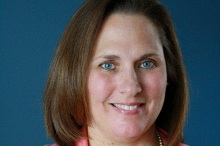 Melissa Kicklighter is being honored as a Champion of Change for her time and effort in supporting parent involvement in our children's education.
Melissa Kicklighter is being honored as a Champion of Change for her time and effort in supporting parent involvement in our children's education.
It is truly an honor, and I am humbled to be selected as a White House Champion of Change. PTA came to me over a decade ago as the perfect way to be involved as my first child entered school, but little did I know that I would learn so much and it would become the platform from which I would have the opportunity to build such meaningful relationships, launch widespread initiatives and create such powerful results.
As a school based PTA leader, my focus was on caring for the students and faculty of our school by building a strong membership and community business partnerships and offering quality programs and services. The first step in accomplishing this was to build a strong team of dedicated board members who were willing to learn with me and get the job done. Through the efforts of this team of dedicated PTA leaders and generous volunteers, we were able to enhance our traditional school programs with increased family and community participation and offer innovative programs and activities each year. Partnering with our teachers to provide educational and fun family night activities and the addition of the BUDs (Brothers, Uncles, Dads, etc) Club, which was created to increase male involvement, were a few of many programs that we created and implemented with pride.
Learn more about EducationProviding the Support that All Our Children Need and Deserve
Posted by on August 9, 2012 at 11:08 AM EDT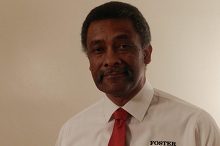 Sam Macer is being honored as a Champion of Change for his time and effort in supporting parent involvement in our children's education.
Sam Macer is being honored as a Champion of Change for his time and effort in supporting parent involvement in our children's education.
I am a PTA dad and foster parent from Maryland. As the immediate past president of Maryland PTA and the current president of the Maryland Foster (Resource) Parent Association, I use my 30 years of PTA experience to support Maryland’s foster parents as they strive to provide the youth in their care with the safety, permanency, wellbeing and educational support our children need and deserve.
As an informed volunteer PTA leader and foster parent/child welfare advocate I am frequently invited by the Maryland Department of Human Resources, the Maryland State Department of Education, the Baltimore City Department of Social Services and the University of Maryland to provide training, advice and input on policy and program development as well as share foster parenting experiences.
As an education advocate for all children with a focus on foster youth I believe PTA’s National Standards for Family – School Partnerships is one of the foundational supports to help foster families increase and sustain academic achievement for the youth in out of home placement. Research indicates many foster youth are sometimes 1-2 grade levels behind and often are 2 years behind in their reading and math skills. To help address these educational deficiencies, with the support of National PTA, Maryland PTA, the Maryland Foster (Resource) Parent Association and the Maryland Department of Human Resources I led the effort to charter the Nation’s first “foster parent PTA”, the Maryland Resource Parent PTSA. This community PTA will have the benefit of all the National PTA programs and will also provide the very specialized and focused information foster families need to support the educational needs of foster youth.
Learn more about EducationBringing the Change
Posted by on August 9, 2012 at 11:01 AM EDT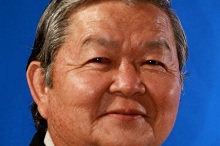 Calvin Endo is being honored as a Champion of Change for his time and effort in supporting parent involvement in our children's education.
Calvin Endo is being honored as a Champion of Change for his time and effort in supporting parent involvement in our children's education.
Mother Teresa was asked by the auditor of the Catholic Church who investigated the work of the Missionaries of Charity, “What is your business plan? What is the written document that you have that show your operational instructions that help run this ministry?” Her answer was critical to having her ministry canonical recognized by the Church. Mother Teresa leans toward the auditor and said, “This is what I do. I speak to Jesus and He speaks to me and I do what He tells me to do.”
I have learned that the only way I can effectively serve my school, church, community, state and our great nation is to get Divine guidance. So I try my best to see the needs of my community through God’s eyes. I serve in many different ways to be a blessing to many. The following is a few ways that I serve my community and State.
Hawaii PTSA – as a member of the state board it gives me insight to the needs of our schools and educational system in Hawaii. We are able to equip our local units, by providing training and workshops and offer ideas and support that help our schools, families and communities.
As a local unit president, I’m able to see firsthand what our principals and teachers are doing to give our children a quality education with minimal financial and training support. I’m constantly trying to get the support our school needs, especially our teachers and students
Learn more about Education
- &lsaquo previous
- …
- 97
- 98
- 99
- 100
- 101
- 102
- 103
- 104
- 105
- …
- next &rsaquo
White House Blogs
- The White House Blog
- Middle Class Task Force
- Council of Economic Advisers
- Council on Environmental Quality
- Council on Women and Girls
- Office of Intergovernmental Affairs
- Office of Management and Budget
- Office of Public Engagement
- Office of Science & Tech Policy
- Office of Urban Affairs
- Open Government
- Faith and Neighborhood Partnerships
- Social Innovation and Civic Participation
- US Trade Representative
- Office National Drug Control Policy
categories
- AIDS Policy
- Alaska
- Blueprint for an America Built to Last
- Budget
- Civil Rights
- Defense
- Disabilities
- Economy
- Education
- Energy and Environment
- Equal Pay
- Ethics
- Faith Based
- Fiscal Responsibility
- Foreign Policy
- Grab Bag
- Health Care
- Homeland Security
- Immigration
- Innovation Fellows
- Inside the White House
- Middle Class Security
- Open Government
- Poverty
- Rural
- Seniors and Social Security
- Service
- Social Innovation
- State of the Union
- Taxes
- Technology
- Urban Policy
- Veterans
- Violence Prevention
- White House Internships
- Women
- Working Families
- Additional Issues

